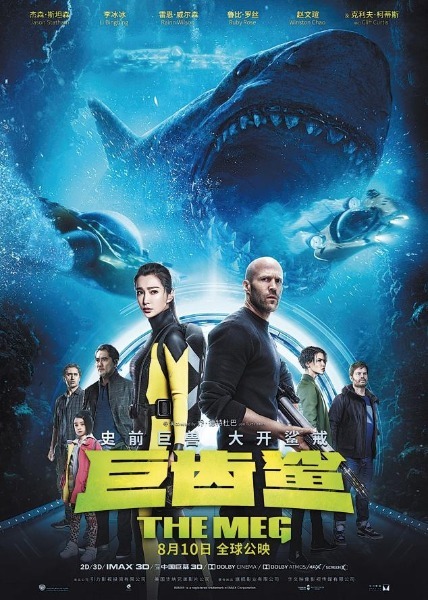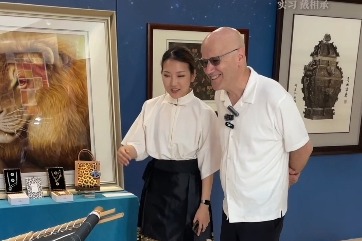Hollywood celebrates US-China film plotline


With the two largest film markets in the world facing economic turbulence and other uncertainties, industry experts are trying to envision and even predict what the future looks like for US-China coproductions in the wake of the global COVID-19 pandemic and the explosive growth of China's own film industry.
Some are very bullish on the prospects, while others are more wary.
Belle Avery, producer of The Meg, the most successful US-China collaboration to date, after her tremendous success there, still has multiple coproductions in development in China.
"I knew synergistically China would be the right place for my project," she says recently.
John Penotti, president of SK Global, said earlier: "There have been many peaks and valleys in the US-China coproduction market, but you can't focus on that. It's a continuum."
During an online webinar hosted this week by the China Institute and the Peking University Alumni Association of New York, Daxing Zhang, the producer of such notable films as Red Cliff, Kung Fu Hero, Man of Tai Chi, and martial artist on many Hollywood blockbusters, like The Matrix, The Mummy: Tomb of the Dragon Emperor, Charlie's Angels and Daredevil, said that there are other important reasons to consider a China coproduction film.
He stresses that the greater box office profit-share that foreign producers get for coproductions is a significant factor to consider.
"If you make US films, there are quotas in China and only a few dozen pictures make it to the big screen. Plus, they make less money on the backend than coproductions, which enjoy almost as much profit as domestic films do in China. For that reason alone they are more attractive," explains Zhang.
But Zhang cautions that the type of content is of primary importance to the success of a coproduction and filmmakers need to pick their target audience and not try to appeal to all viewers.
Avery said previously: "You need to do Chinese cultural characters right. It has to be culturally sound. The key is to be respectful and synergistic with both cultures."
Wendy Weiqun Su, associate professor of media and cultural studies at the University of California, Riverside, feels that more than just market-driven, or profit-seeking partnerships, US-China coproductions are innovative communication models that have the potential to create a space for a new global culture and to help China and the United States to achieve a consensus.
"But the fulfillment of these potentials will require a steadfast effort and the commitment of more than one generation of filmmakers from both China and the US," she asserts.
Professor Su authored, China's Encounter with Global Hollywood: Cultural Policy and Film Industry, 1994-2013, and posited that a global culture and a reshaping of the global media structure are already in the making.
Another educator, Kerry Osborne, a former New York City public education teacher told Xinhua online: "The more we have collaboration around the world, the more we see a world family forming."
Entertainment attorney, Barry Skidelsky, said during the China Institute webinar: "There is no sure way to make a TV or film coproduction with guaranteed global appeal. That's very difficult to do, but there are universal themes that people respond to all over the world: we're all concerned with our families, with individual prosperity and collective prosperity."
- 77th Venice Int'l Film Festival announces line-up
- Livestreaming becomes new mode of film marketing and ticketing amid epidemic
- Beijing Int'l Film Festival to open in August
- Venice Film Festival to honor Ann Hui and Tilda Swinton with lifetime achievement awards
- Christopher Nolan's 'Tenet' to debut internationally ahead of US release




































